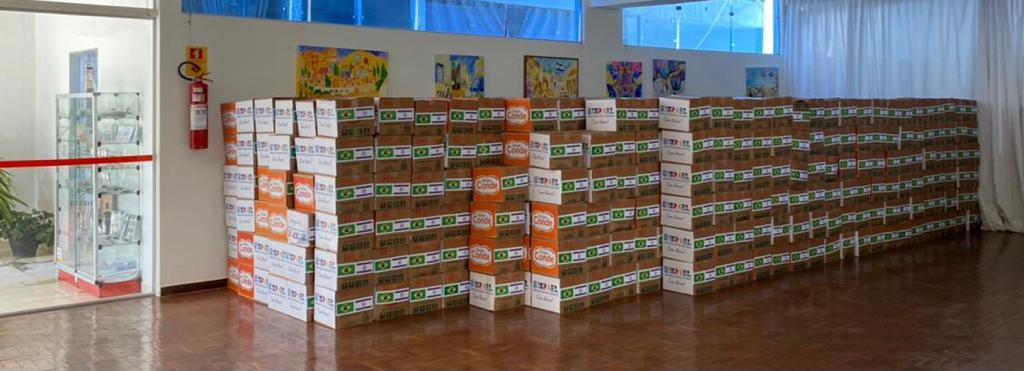Apart from following the recommendations and protocols for the health security of their members due to Covid-19, leaders and liturgical corps have also been working internally in the care of families that are going through some particular situation. Fundamental Jewish values such as tzedakah and Tikkun Olam are leading the way.
In the case of Brazil, two months ago Manaus became the epicenter of the pandemic crisis, with the outbreak of the number of victims of a variant of the virus, aggravated by the depletion of essential supplies, emblematically represented by the lack of oxygen.
In terms of Jewish geography, the community of Manaus was formed mainly from the migratory wave of Jews from Morocco in the early 19th century during the rubber cycle and later, the coffee cycle. Today, with approximately 300 families, the community was impacted by this second wave of Covid-19, and a series of initiatives were put into action, some of them of a financial nature, some through the provision of services, through a network of health professionals (the community has approximately 50 doctors).
With the emergency, several communities across the country made contact with the Israelite Committee of Amazonas (CIAM) seeking to support ongoing efforts. The community then decided to join the national mobilization of Hospital Albert Einstein, channeling all aid to this initiative. “We came to Manaus in days of ‘terror’, crowded hospitals, people dying from lack of oxygen that could not be replenished due to the lack of maintenance in road infrastructure – the feeling in these hours is that we are not part of Brazil! The BR-319 highway needs to be restored. Hospital Albert Einstein purchased supplies and this aid was sent in the form of products, medicines, oxygen cylinders.” – says David Vital Israel, president of CIAM. The Israeli Embassy also mobilized partners by sending a shipment of 1,500 basic food baskets that were distributed to families in need. The Bemol store chain, owned by local Jews, was one of the main distribution networks of donations that came from all over the country.
The pandemic led us to radical changes in our social habits, but it also brought us closer to the ancient teachings of our sages, to take care of the other, and ourselves with promptness. “If I am not for myself, who will be? If I am just for myself, who am I? If not now, when? ” (Pirkê Avot 1:14)


